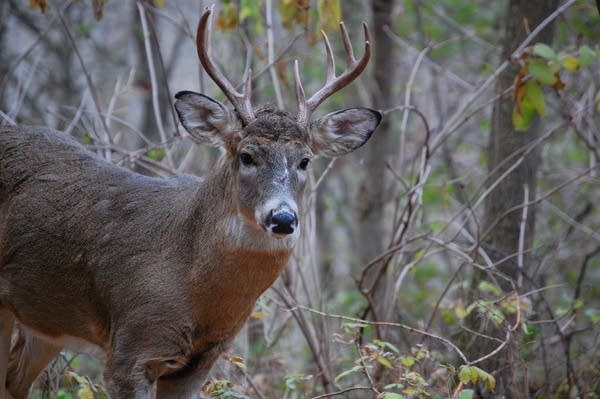Crow Wing Co. deer farm closed, deer euthanized after positive CWD test

Go Deeper.
Create an account or log in to save stories.
Like this?
Thanks for liking this story! We have added it to a list of your favorite stories.
All the deer on a Crow Wing County farm where chronic wasting disease was confirmed more than two years ago have been euthanized, the Minnesota Board of Animal Health announced this week.
Chronic wasting disease, a fatal brain condition, was first discovered in the deer herd on the farm near Merrifield, Minn., in 2016. The state animal health board monitored the herd, but until this week, the farm had continued to operate. It was the last remaining CWD-positive farm in the state that still had live animals.
Early this year, a wild doe found about a half-mile from the Merrifield farm tested positive for CWD, increasing concern that the fatal brain disease had spread.
Since then, the Board of Animal Health and the Minnesota Department of Natural Resources wanted the infected herd to be destroyed. But Minnesota law doesn't require producers to do so.
Turn Up Your Support
MPR News helps you turn down the noise and build shared understanding. Turn up your support for this public resource and keep trusted journalism accessible to all.
"Our strong preference would have been to depopulate the farm as soon as it became infected," said Lou Cornicelli, a DNR wildlife research manager. "Because every day that positive animals are on a facility, the risk increases for wild deer, and the risk increases environmental contamination."
Instead, the animal health board said the U.S. Department of Agriculture negotiated an agreement with the farm's owner, who will be paid an undisclosed amount through the USDA's indemnity program.
Tissue samples from the euthanized deer will be tested for CWD, with results expected within a few weeks.
"It likely won't change our response, because we already have CWD outside the fence in that area," Cornicelli said. "But certainly, the current risk is reduced with the animals not on the landscape."
The farm property will be monitored and inspected for five years, said Dr. Linda Glaser, an assistant director with the Board of Animal Health. The farm can't restock the site with deer for at least five years, she said.
"The concern is that CWD is not only in the animals but can contaminate the environment and can last for an unknown period of time in the environment," Glaser said. "So, even though we remove the animals from the premises, we know that they've had a chance through urine, feces and other materials to shed that prion into the environment."
The DNR is developing a CWD management zone to minimize risk of the disease spreading, Cornicelli said.
"We've done a lot of surveillance over the last two years," he said. "I think if the disease were present at any great level outside the fence, we would have picked it up."


